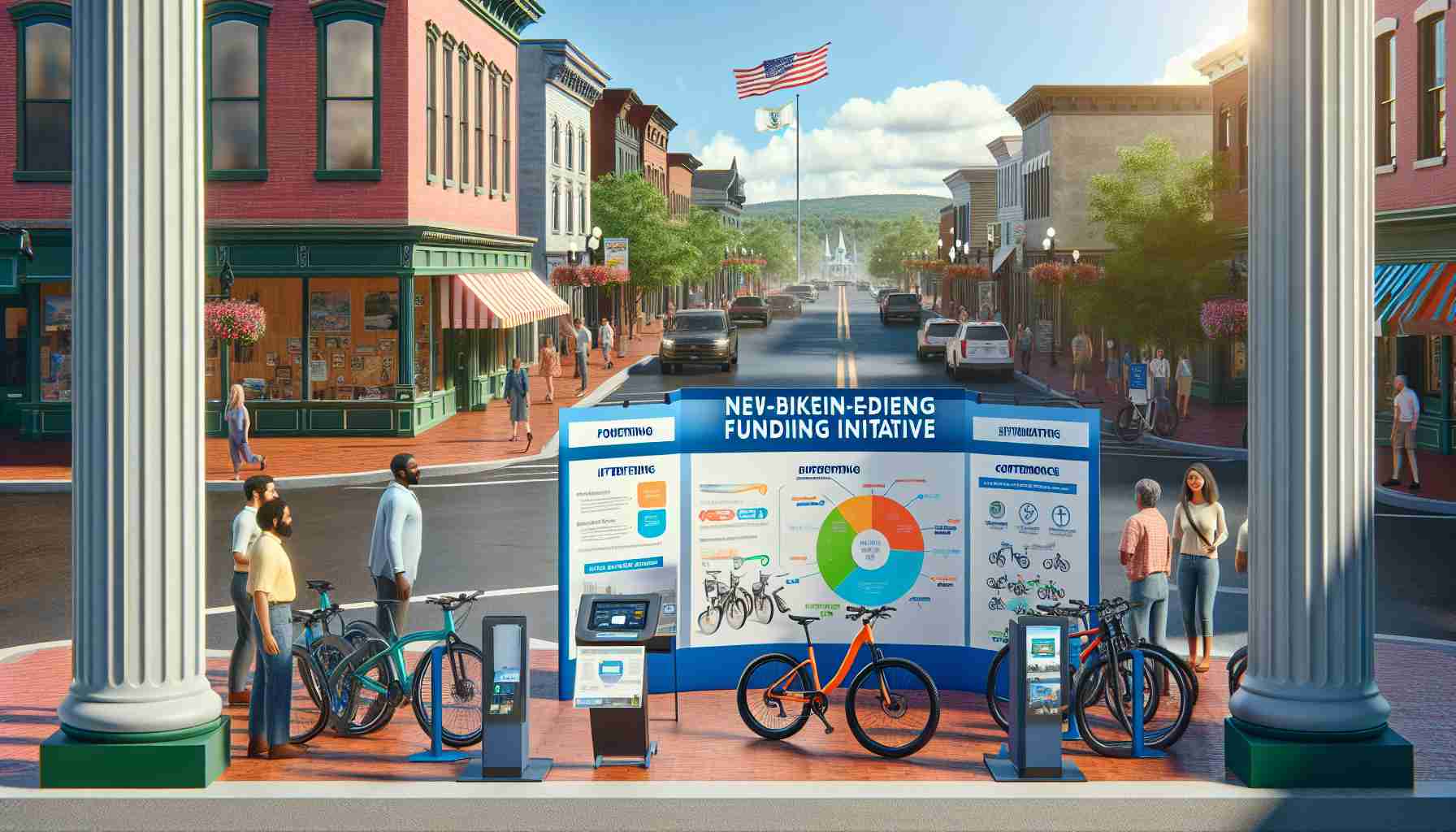In a significant move to promote sustainable transportation, the state of Connecticut is rolling out an expanded funding initiative for its well-received E-Bike Incentive Program. This new phase aims to enhance access to electric bicycles, allowing residents to benefit from substantial savings of over $1,000 on eligible purchases.
During a recent press event in Bushnell Park, Commissioner of the Department of Energy and Environmental Protection, Katie Dykes, highlighted the overwhelming interest from constituents in the initial cohorts of the program. The funding aims to address air quality and climate concerns while providing transportation options for communities disproportionately impacted by pollution.
Hartford’s Mayor, Arunan Arulampalam, emphasized the critical need for diverse transportation solutions, particularly for the city’s population lacking reliable car access. He noted that many residents could significantly benefit from e-bikes, making strides toward greener mobility and enhanced access to essential services.
The incentive structure includes two tiers: standard vouchers worth $500 and the “Voucher+” at $750, with opportunities for applicants to combine vouchers for even greater savings. The program’s first cycle allocated $600,000, serving 422 residents, but this new round will increase funding to $750,000, potentially helping over 600 individuals.
A lottery system will be introduced to allocate vouchers, ensuring that those from income-qualifying and environmental justice communities receive priority. This strategic approach underscores Connecticut’s commitment to equitable access to clean transportation, potentially transforming mobility for countless residents.
In recent years, the e-bike industry has seen substantial growth as more consumers recognize the environmental and practical benefits of electric bicycles. As governments and organizations pivot towards sustainable transportation solutions, the demand for e-bikes has surged. According to industry reports, the global e-bike market is expected to grow significantly in the coming years, driven by a surge in urbanization, rising fuel prices, and increasing environmental consciousness among consumers.
Market Forecasts
As the e-bike market matures, it is projected to reach a value of approximately $38 billion by 2025, expanding at a compound annual growth rate (CAGR) of over 10%. This growth is likely bolstered by favorable government policies and initiatives similar to Connecticut’s E-Bike Incentive Program, which encourage the adoption of electric bicycles. Additionally, innovations in battery technology and e-bike design are expected to enhance the user experience and make e-bikes more appealing to a wider demographic.
Challenges Within the Industry
Despite its growth potential, the e-bike industry faces several challenges. Issues such as high retail prices compared to traditional bicycles, safety concerns, and the lack of dedicated infrastructure in many cities can hinder broader adoption. Moreover, the quality and lifespan of e-bike batteries remain critical considerations for consumers, as they significantly impact the total cost of ownership. Addressing these concerns is vital for the industry to expand its customer base effectively and for local initiatives, like Connecticut’s funding initiative, to reach their intended goals.
Moreover, the introduction of voucher programs, like those in Connecticut, is critical for overcoming financial barriers. By focusing on income-qualifying and environmentally disadvantaged communities, these programs not only promote equity but also target areas where pollution and transportation inequities are most pronounced. This approach aligns with broader environmental goals as cities strive to reduce greenhouse gas emissions from transportation.
Broader Implications
The implementation of initiatives such as the E-Bike Incentive Program can lead to significant behavioral changes in urban transportation. E-bikes offer a sustainable alternative to cars, potentially alleviating congestion on the roads and reducing air pollution. As cities like Hartford embrace this change, they also pave the way for more robust cycling infrastructure, which can further promote cycling and improve overall urban mobility.
With the ongoing support from regional governments and growing community interest, e-bikes are on track to becoming a staple of urban transportation. As more states and municipalities explore similar initiatives, the future of e-bikes looks promising.
For more information on the e-bike market and initiatives supporting their adoption, you can visit Energy.gov and BikeLeague.org.







